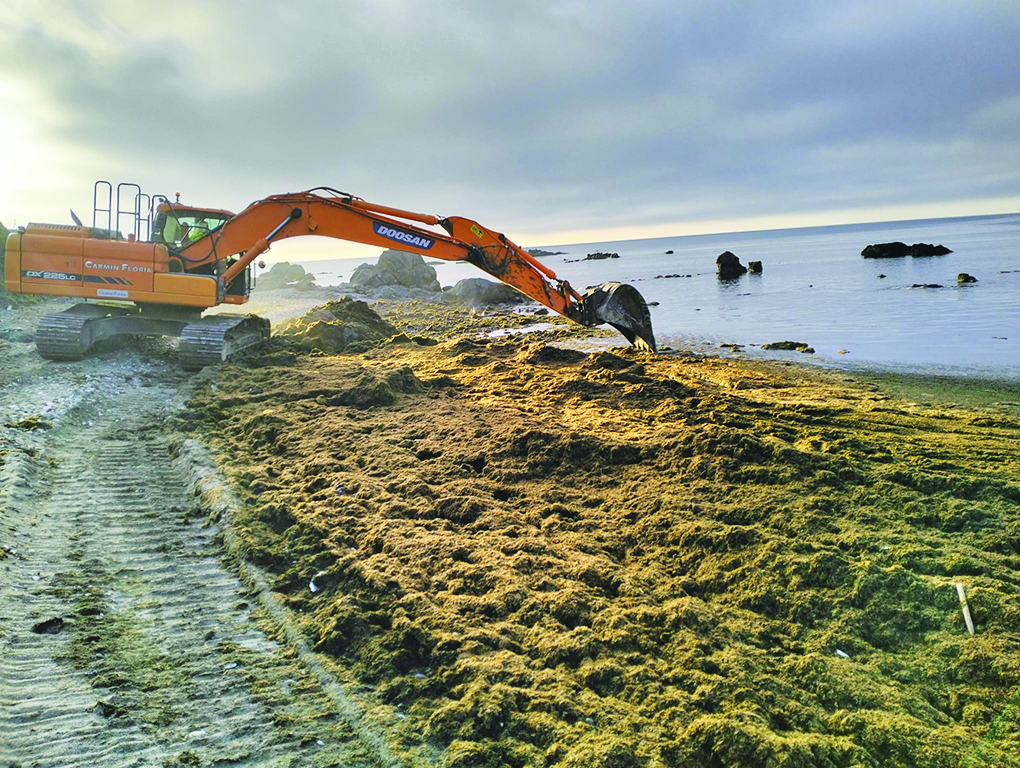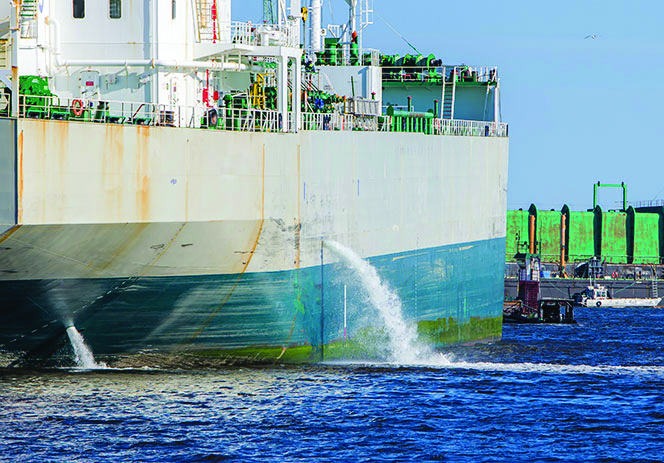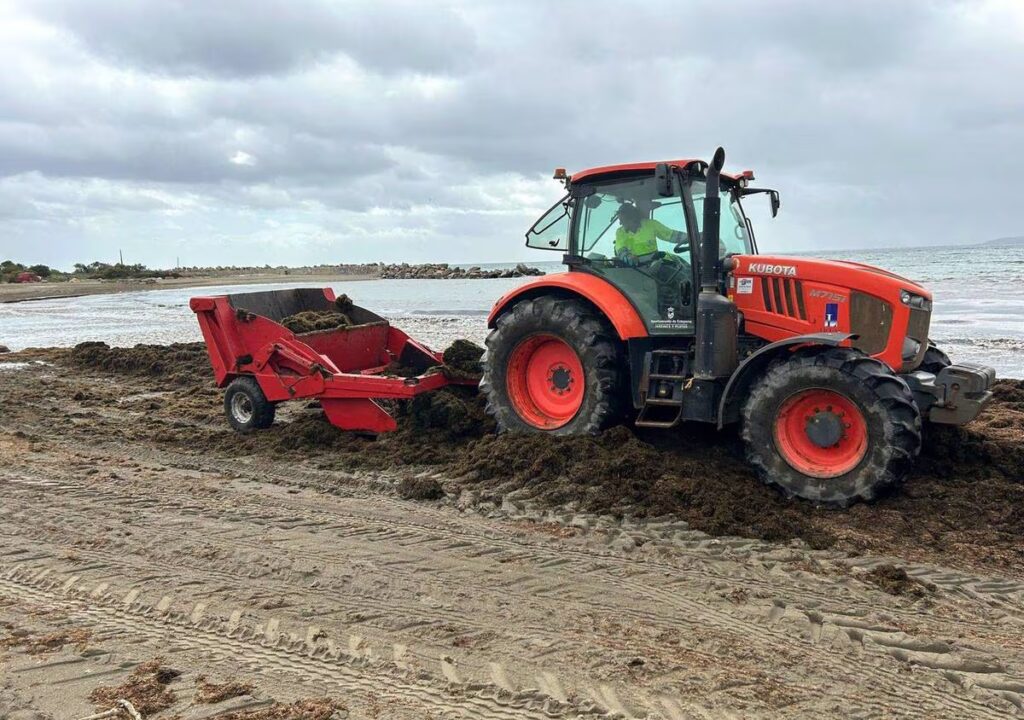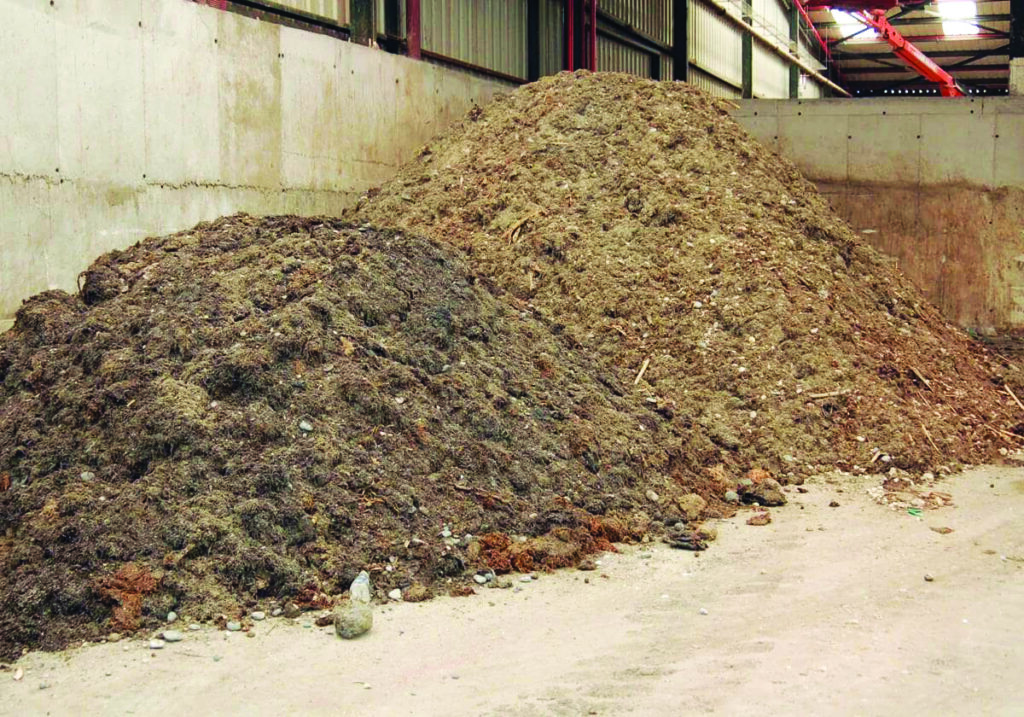
In recent years, the western Costa del Sol has been facing a growing environmental issue caused by the rapid spread of Asiatic seaweed (Rugulopterix okamurae). This invasive species, which originated in Asia, has become a significant problem for the region’s beaches and marine ecosystems, with severe consequences for local tourism, fishing industries, and biodiversity.
Asiatic seaweed was first identified in the Mediterranean around 2015 when it appeared on the beaches at Tarifa and Ceuta. It is suspected the it originated in ballast water from a South Korean ship, which was released into the sea at Algeciras port, and since then, it has proliferated along the Andalucian coastline, particularly affecting popular tourist destinations such as Estepona, Marbella, Casares and Manilva. The seaweed forms dense mats along the seafloor, which can overwhelm native marine species, reduce biodiversity, and cause problems for local fishermen as it becomes entangled in nets. Additionally, large quantities of seaweed wash ashore, disrupting beach tourism as the decomposing biomass emits a foul odour and creates unsightly piles along the shorelines.
To address this growing concern, local authorities and environmental groups have introduced a series of measures to manage the problem and mitigate its impact. One of the primary strategies has been the mechanical removal of the seaweed from the beaches. In the municipality of Estepona alone, it is estimated that over 4,000 tonnes of seaweed were removed during the summer of 2023. Marbella and Manilva have also implemented removal operations, collectively clearing thousands of tonnes of the seaweed from their shores.
However, simply removing the seaweed from the beaches does not resolve the environmental impact. To tackle this, an innovative composting initiative has been introduced to repurpose the collected seaweed as organic compost. Local municipalities are working with agricultural and environmental experts to transform the seaweed into compost that can be used to fertilise crops and improve soil quality in the region. This initiative not only addresses the issue of disposal but also contributes to sustainable agricultural practices in Andalusia.
The composting project has been met with positive feedback, with early reports suggesting that the nutrient-rich seaweed may prove beneficial for certain crops, such as olive trees and grapevines. By turning an invasive problem into a sustainable solution, the western Costa del Sol is taking steps to reduce the long-term environmental and economic impacts of the Asiatic seaweed invasion.
While the measures introduced so far have helped alleviate some of the immediate effects of the seaweed problem, the situation remains challenging. Authorities continue to monitor the spread of the seaweed and explore additional solutions to control its growth and protect the local ecosystems. Awareness campaigns have also been launched to educate both residents and visitors about the issue, encouraging responsible behaviour and support for the efforts to manage this invasive species.











